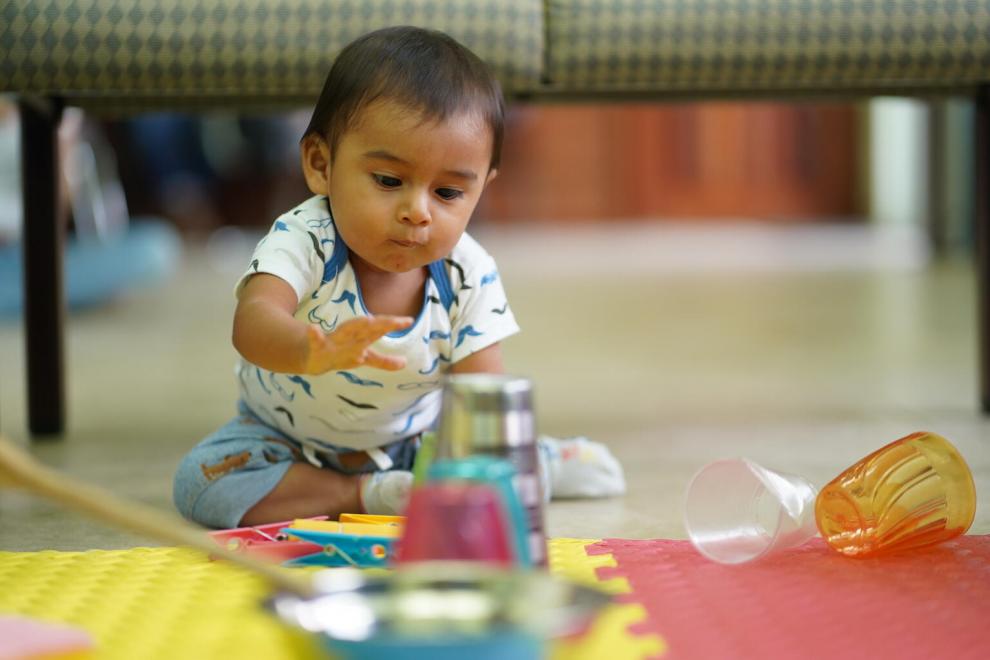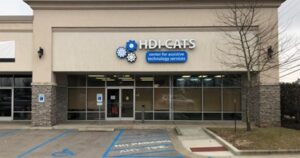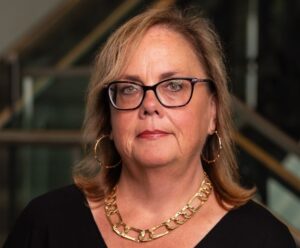Educators from the University of KY are providing a unique service to address a desperate need- training students to work with babies born substance exposed.
The team of educators includes Dr. Jennifer Grisham and Dr. Sarah Hawkins-Lear from UK’s Interdisciplinary Early Childhood Education (IECE); Dr. Joneen Lowman and Dr. Judith Page from Communication Sciences and Disorders (CSD), and Dr. Caroline Gooden from the Human Development Institute (HDI). They have been awarded funding from the US Department of Education to provide training for IECE teachers and speech pathologists to work across disciplines with babies who are born substance exposed. The project is called Neonatal Abstinence Syndrome Training for Interdisciplinary Professionals (NASTIPS). NASTIPS will train IECE and CSD graduate students to provide high quality interdisciplinary interventions to children born substance-exposed; that is, children whose mothers used substances such as illicit drugs or alcohol during pregnancy.
“We have lots of babies in Kentucky who are born substance exposed as a result of the opioid epidemic,” Gooden said, adding that opioids join alcohol as a common cause of substance exposure in children. “It’s a huge epidemic, and most of our teachers aren’t trained to recognize it or to know what to do with it.”
Substance exposure is a multifaceted situation, and it will take many different approaches to help these children and their families.
NASTIPS builds on a prior HDI training program called Project SCOPE (Supporting Children of the Opioid Epidemic) that used telehealth sessions to help providers across disciplines work with children who are born substance exposed and their families.
“We recognize that we need to have an interdisciplinary approach to work with this population,” Gooden said. “It’s not a single-symptom kind of situation. We have babies who need services, families who need services, and doctors who seek training in substance abuse treatment methods. It’s a complex network of services that we need to build.”
There are other agencies in KY that are working to create supports to help this population, and Gooden says the work they’re doing is critically needed and are partners in this effort. This project addresses an unmet need for IECE teacher and speech/language pathologist (SLP) training that has not been provided to date.
“We’re excited because there is no such training program in Kentucky…We’re excited about this because it brings an educational component to programs in KY that are desperately needed,” Gooden said, adding that “most of our teachers and SLPs aren’t trained to recognize neonatal abstinence syndrome (NAS) or to support children with NAS, which is what this project will provide.”
To that end, the project will train two cohorts of eight students each for two years of study, serving a total of 16 students over four years, to use high quality practices with these children and their families.
“These teachers and speech therapists will effectively know how to work with the children on their caseloads and will be able to assist other teachers and SLPs in their agencies across the state,” Gooden said.
She stressed that for this project, the focus isn’t only on teaching the children; also, families are a key part of their children’s success. The program will take a holistic approach, helping its students work with the whole family.
“In most early childhood settings, you have lots of involvement with families, which is wonderful,” Gooden said. “One thing we can’t stress enough is that as an IECE teacher or SLP, we need to be really accepting of where our families are. They might be in recovery; they might be struggling to get in recovery and to get the services they need as a family. They need our support and not our judgment.” Gooden stressed that as important as it is to recognize and address the effects of substance exposure in children, it is just as important to treat these children and their families with compassion. “We need to be nonjudgmental and serve these children where they are, as well as their families. Families with substance use disorder suffer from lots of stigma, which can be a barrier to their treatment and recovery,” she said. “We want to address the whole family’s needs and the whole child’s needs.”



